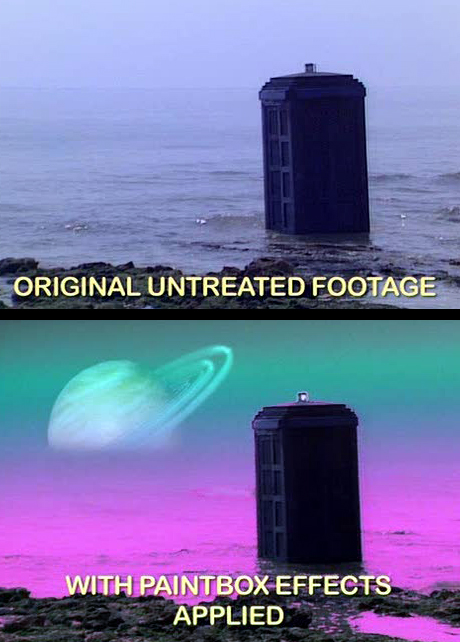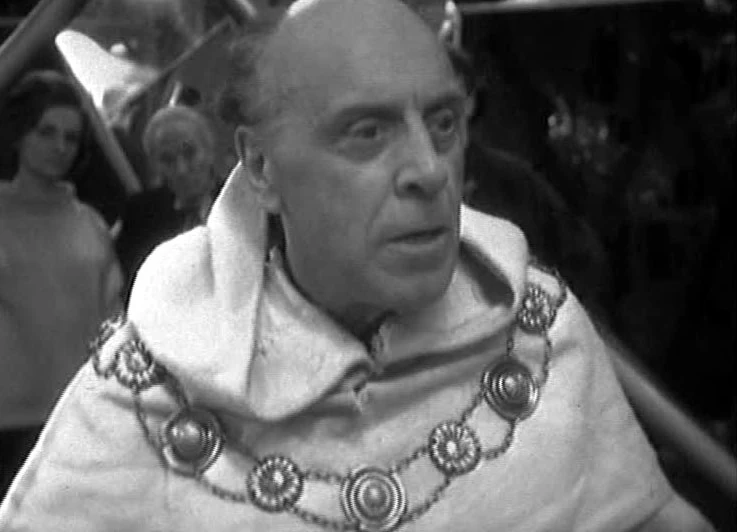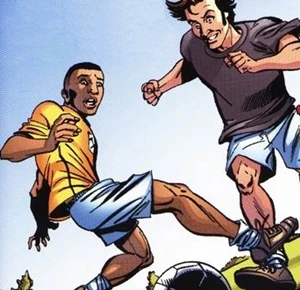No edit summary |
No edit summary |
||
| (27 intermediate revisions by 8 users not shown) | |||
| Line 1: | Line 1: | ||
__NOTOC__ |
__NOTOC__ |
||
{{template:transmat:{{PAGENAME}}}} |
{{template:transmat:{{PAGENAME}}}} |
||
| − | <div |
+ | <div id="tr-box-container" style="width:98%"> |
<div id="tr-box-container" class="tr-box-cols" style=margin-top:40px> |
<div id="tr-box-container" class="tr-box-cols" style=margin-top:40px> |
||
<div class="tr-box one"> |
<div class="tr-box one"> |
||
{{thead|The women who gave ''Doctor Who'' back to us}} |
{{thead|The women who gave ''Doctor Who'' back to us}} |
||
| − | [[file:JaneTranter.jpg|link=http://tardis.wikia.com/wiki/Transmat:Doctor_Who?file=David_Tennant_interviews_Doctor_Who_Producers_-_Doctor_Who_Confidential_-_BBC]] |
+ | [[file:JaneTranter.jpg|center|link=http://tardis.wikia.com/wiki/Transmat:Doctor_Who?file=David_Tennant_interviews_Doctor_Who_Producers_-_Doctor_Who_Confidential_-_BBC]] |
{{tcap|Click for video}} |
{{tcap|Click for video}} |
||
Think ''Doctor Who'' is just for boys? Don't you believe it. Not only was the show's [[Verity Lambert|very first producer]] a woman, but it would never have come back without the fierce advocacy of '''[[Jane Tranter]]''' and '''[[Julie Gardner]]'''. Considering her importance to ''Doctor Who'' it's somewhat ironic that Tranter's only on-screen ''credits'' are for ''[[Torchwood: Miracle Day]]''. But Gardner, her "partner in crime", is tied only with [[Russell T Davies]] as the most prolific producer in ''[[Doctor Who]]'' history. |
Think ''Doctor Who'' is just for boys? Don't you believe it. Not only was the show's [[Verity Lambert|very first producer]] a woman, but it would never have come back without the fierce advocacy of '''[[Jane Tranter]]''' and '''[[Julie Gardner]]'''. Considering her importance to ''Doctor Who'' it's somewhat ironic that Tranter's only on-screen ''credits'' are for ''[[Torchwood: Miracle Day]]''. But Gardner, her "partner in crime", is tied only with [[Russell T Davies]] as the most prolific producer in ''[[Doctor Who]]'' history. |
||
</div> |
</div> |
||
| − | <div class="tr-box |
+ | <div class="tr-box two"> |
{{thead|Industrial action}} |
{{thead|Industrial action}} |
||
[[File:Paintbox.jpg|link=http://tardis.wikia.com/wiki/Transmat:Doctor_Who?file=BBC%2527s_Historic_Mainframe_Arrives%2521%2521_%2528Quantel_Paintbox_DPB_7000%2529_This_created_many_80s_programs%2521%2521]] |
[[File:Paintbox.jpg|link=http://tardis.wikia.com/wiki/Transmat:Doctor_Who?file=BBC%2527s_Historic_Mainframe_Arrives%2521%2521_%2528Quantel_Paintbox_DPB_7000%2529_This_created_many_80s_programs%2521%2521]] |
||
{{tcap|Click for a video of a [[21st century]] geek as he takes delivery of one of the two Paintboxes used by the BBC in the 1980s}} |
{{tcap|Click for a video of a [[21st century]] geek as he takes delivery of one of the two Paintboxes used by the BBC in the 1980s}} |
||
The '''[[Quantel Paintbox]]''' was a graphics workstation that allowed ''[[Doctor Who]]'' to have a primitive form of [[colourist|colour grading]] in the [[1980s]]. To find out more about the "business of show", go to '''[[:category:production information]]''', where you can read about [[colour separation overlay]], [[low loader]]s, [[telerecording]]s, [[vidFIRE]], [[rostrum camera]]s, [[2" quad]] tape, [[Ealing Studios]] and tons more.</div> |
The '''[[Quantel Paintbox]]''' was a graphics workstation that allowed ''[[Doctor Who]]'' to have a primitive form of [[colourist|colour grading]] in the [[1980s]]. To find out more about the "business of show", go to '''[[:category:production information]]''', where you can read about [[colour separation overlay]], [[low loader]]s, [[telerecording]]s, [[vidFIRE]], [[rostrum camera]]s, [[2" quad]] tape, [[Ealing Studios]] and tons more.</div> |
||
| − | <div class="tr-box |
+ | <div class="tr-box one"> |
{{thead|Surprising guest star}} |
{{thead|Surprising guest star}} |
||
| + | {{surprising guest}} |
||
| − | '''[[John Cleese]]''' appeared in ''Doctor Who''{{'}}s highest rated televised story, ''[[City of Death]]'', around the time of series 2 of ''Fawlty Towers''. Find out more about the thousands of actors who have been on ''Doctor Who'' by exploring '''[[:category:Doctor Who guest actors|Doctor Who guest actors]]'''. |
||
</div> |
</div> |
||
| − | <div class="tr-box |
+ | <div class="tr-box two"> |
{{thead|Ex-Doctors never die, they just make audios}} |
{{thead|Ex-Doctors never die, they just make audios}} |
||
The careers of the [[Fifth Doctor|Fifth]], [[Sixth Doctor|Sixth]], [[Seventh Doctor|Seventh]] and [[Eighth Doctor]]s are '''significantly''' longer [[Big Finish Doctor Who audio stories|in audio]] than on television. Check out their latest works at '''[[:category:{{CURRENTYEAR}} audio stories]]''' |
The careers of the [[Fifth Doctor|Fifth]], [[Sixth Doctor|Sixth]], [[Seventh Doctor|Seventh]] and [[Eighth Doctor]]s are '''significantly''' longer [[Big Finish Doctor Who audio stories|in audio]] than on television. Check out their latest works at '''[[:category:{{CURRENTYEAR}} audio stories]]''' |
||
</div> |
</div> |
||
| − | <div class="tr-box |
+ | <div class="tr-box one"> |
{{thead|The relevance of comics}} |
{{thead|The relevance of comics}} |
||
Officially, only ''[[The Lodger (TV story)|The Lodger]]'' has been explicitly adapted from a comic strip — also called ''[[The Lodger (comic story)|The Lodger]]''. |
Officially, only ''[[The Lodger (TV story)|The Lodger]]'' has been explicitly adapted from a comic strip — also called ''[[The Lodger (comic story)|The Lodger]]''. |
||
| − | [[File:10MickeyFootball. |
+ | [[File:10MickeyFootball.jpg|center|link=http://tardis.wikia.com/wiki/Transmat:Doctor_Who?file=Craig_asks_The_Doctor_to_leave_-_Doctor_Who_-_BBC]] |
However, several stories have clearly taken material from comic strips — often those in ''[[Doctor Who Magazine]]''. ''[[The Shakespeare Code (TV story)|The Shakespeare Code]]'' contains a good amount of material from ''[[A Groatsworth of Wit (comic story)|A Groatsworth of Wit]]'', and the notion of the Doctor absorbing the [[time vortex]] in order to spare a [[companion]] was explored in both ''[[The Parting of the Ways (TV story)|The Parting of the Ways]]'' and ''[[The Flood (comic story)|The Flood]]''. |
However, several stories have clearly taken material from comic strips — often those in ''[[Doctor Who Magazine]]''. ''[[The Shakespeare Code (TV story)|The Shakespeare Code]]'' contains a good amount of material from ''[[A Groatsworth of Wit (comic story)|A Groatsworth of Wit]]'', and the notion of the Doctor absorbing the [[time vortex]] in order to spare a [[companion]] was explored in both ''[[The Parting of the Ways (TV story)|The Parting of the Ways]]'' and ''[[The Flood (comic story)|The Flood]]''. |
||
</div> |
</div> |
||
| Line 33: | Line 33: | ||
But Baverstock wasn't the only '''[[:category:BBC executives|BBC executive]]''' to have a profound impact on the development of ''Doctor Who''. Make sure you read about [[Lorraine Heggessey]], [[Mark Thompson]], [[Danny Cohen]], [[George Entwistle]], [[Tony Hall]], [[Shaun Sutton]], [[Sydney Newman]] and others. </div> |
But Baverstock wasn't the only '''[[:category:BBC executives|BBC executive]]''' to have a profound impact on the development of ''Doctor Who''. Make sure you read about [[Lorraine Heggessey]], [[Mark Thompson]], [[Danny Cohen]], [[George Entwistle]], [[Tony Hall]], [[Shaun Sutton]], [[Sydney Newman]] and others. </div> |
||
| ⚫ | |||
| ⚫ | |||
| ⚫ | |||
<div class="tr-box two"> |
<div class="tr-box two"> |
||
| − | {{thead|Things released on [[{{CURRENTDAY}} {{CURRENTMONTHNAME}} (releases){{CURRENTDAY}} {{CURRENTMONTHNAME}} |
+ | {{thead|Things released on [[{{CURRENTDAY}} {{CURRENTMONTHNAME}} (releases)|{{CURRENTDAY}} {{CURRENTMONTHNAME}}]] }}{{:{{CURRENTDAY}} {{CURRENTMONTHNAME}} (releases)}} |
| ⚫ | |||
| ⚫ | |||
| + | {{thead|Did you know…}} |
||
| + | {{Doctor Who Wiki/DYK}} |
||
</div> |
</div> |
||
<div class="tr-box three"> |
<div class="tr-box three"> |
||
{{thead|[[{{CURRENTDAY}} {{CURRENTMONTHNAME}} (people)|{{CURRENTDAY}} {{CURRENTMONTHNAME}}]] births and deaths }}{{:{{CURRENTDAY}} {{CURRENTMONTHNAME}} (people)}} |
{{thead|[[{{CURRENTDAY}} {{CURRENTMONTHNAME}} (people)|{{CURRENTDAY}} {{CURRENTMONTHNAME}}]] births and deaths }}{{:{{CURRENTDAY}} {{CURRENTMONTHNAME}} (people)}} |
||
</div> |
</div> |
||
| + | {{#ifexpr: {{PAGESIZE:{{CURRENTDAY}} {{CURRENTMONTHNAME}} (production)|R}} < 440|| |
||
| + | <div class="tr-box two"> |
||
| ⚫ | |||
| + | </div>}} |
||
</div> |
</div> |
||
</div> |
</div> |
||
| − | {{reflist}} |
+ | {{reflist|2}} |
| + | {{cache clearer}} |
||
Latest revision as of 00:50, 16 January 2019
Playback was a television production technique in which pre-recorded material was literally played into a scene, rather than being added as a post-production effect. It was universally used in the 1960s as the method by which actors were seen on view screens. As seen in the picture at the left, William Hartnell was pre-recorded separately, then projected live into the scene with the actors in the foreground. Though antiquated, the technique was used even into the 1980s, most notably for the title sequence. The quality of the opening titles for the 1963 version of Doctor Who was never high, because it was never a first-generation copy of the titles. Instead, they were played live into the recording of the first scene of many episodes, causing actors to have to time their first lines to the final notes of the studio-audible Doctor Who theme.
Think Doctor Who is just for boys? Don't you believe it. Not only was the show's very first producer a woman, but it would never have come back without the fierce advocacy of Jane Tranter and Julie Gardner. Considering her importance to Doctor Who it's somewhat ironic that Tranter's only on-screen credits are for Torchwood: Miracle Day. But Gardner, her "partner in crime", is tied only with Russell T Davies as the most prolific producer in Doctor Who history.
The careers of the Fifth, Sixth, Seventh and Eighth Doctors are significantly longer in audio than on television. Check out their latest works at category:2024 audio stories
Officially, only The Lodger has been explicitly adapted from a comic strip — also called The Lodger.
However, several stories have clearly taken material from comic strips — often those in Doctor Who Magazine. The Shakespeare Code contains a good amount of material from A Groatsworth of Wit, and the notion of the Doctor absorbing the time vortex in order to spare a companion was explored in both The Parting of the Ways and The Flood.
Donald Baverstock was the BBC executive who set the the wheels in motion that eventually led to the creation of Doctor Who. Essentially the original commissioner of the programme, he hired Sydney Newman and later imposed a sense of financial responsibility upon producer Verity Lambert.
But Baverstock wasn't the only BBC executive to have a profound impact on the development of Doctor Who. Make sure you read about Lorraine Heggessey, Mark Thompson, Danny Cohen, George Entwistle, Tony Hall, Shaun Sutton, Sydney Newman and others.- 1965 - Part five of the TV Comic story On the Web Planet was first published.
- 1969 - Episode one of The War Games was first broadcast on BBC1.
- 1969 - Part three of the TV Comic story Eskimo Joe was first published.
- 1975 - Part one of Revenge of the Cybermen was first broadcast on BBC1.
- 1975 - Part four of the TV Comic story Return of the Daleks was first published.
- 2002 - Part one of "Death Comes to Time" was first released online.
- 2006 - DWA 2 was first released by BBC Magazines.
- 2007 - Sting of the Zygons, The Last Dodo and Wooden Heart were first published by BBC Books.
- 2008 - Planet of the Ood was first broadcast on BBC One. Later, Oods and Ends aired on BBC Three.
- 2012 - DWA 265 was first released by Immediate Media Company London Limited.
- 2012 - DWMSE 31 was first released by Panini Comics.
- 2017 - Alien Heart and Dalek Soul were first released by Big Finish Productions.
- 2017 - Part two of Sharper Than a Serpent's Tooth was first published in 10DY3 4.
- 2018 - DWMSE 49 was first released by Panini Comics.
- 2018 - DWFC 122 was first released by Eaglemoss Collections.
- 2019 - TCH 19 was first released by Hachette Partworks.
- 2020 - Farewell, Sarah Jane was released on the Doctor Who website.
- 2021 - Series 8 was released in a Steelbook Blu-ray box set.
- ... that Ashley Way, one of the most prolific Torchwood directors, enjoyed a particularly long professional relationship with Eve Myles, having directed her in not just Torchwood, but also Belonging, her other major work for BBC Wales?
- ... that Nina Rogers was a Cardiff student who, from a distance, saw Torchwood Three at work on at least three different occasions? (PROSE: Consequences, Risk Assessment, Lost Souls)
- ... that the Thousand Day War was a war fought at the end of the 21st century between humans and Ice Warriors? (PROSE: Legacy, GodEngine and others)
- ... that there were two versions of the Tenth Doctor in London during Christmas 2006 — one aboard a Sycorax spaceship and one helping a boy named Daniel at St Nicholas's Hospital? (TV: The Christmas Invasion, PROSE: Deep and Dreamless Sleep)
- ... that the Ikkaba were a time-traveling race who had a huge cultural impact upon several galaxies — and even influenced the building of pyramids by the Aztecs, Babylonians and Yamayans — but died out en masse, leaving behind little more than poetry? (PROSE: Walking to Babylon)
- 1907 - Actor Alan Wheatley was born.[1]
- 1912 - Actor Jack Cunningham was born.[2]
- 1918 - Conductor Marcus Dods was born.[3]
- 1945 - Actor John Abbott was born.[4]
- 1945 - Actor Cleo Sylvestre was born.[5]
- 1960 - Actor Mark Greenstreet was born.[6]
- 1964 - Actor Marcus Harris was born.[7]
- 1972 - Actor Pandora Colin was born.[8]
- 1980 - Actor Tony Beckley died.[9]
- 1983 - Actor Chris Gannon died.[10]
- 1983 - Actor Victoria Yeates was born.[11]
- 1989 - Actor Belinda Owusu was born.[12]
- 1992 - Presenter and Actor Christel Dee was born.[13]
- 2001 - Actor Demi Papaminas was born.[14]
- 2004 - Actor Philip Locke died.[15]
- 2011 - Actor Elisabeth Sladen died.[16]
- 2016 - Actor Graeme Eton died.[17]
- 1968 - Episode three of The Wheel in Space was recorded at BBC Television Centre Studio 1. (TCH 12)
- 1968 - The Mind Robber was extended from four parts into five, with Derrick Sherwin commissioned to write a new opening episode for the story.[18]
- 1971 - Location filming for The Dæmons took place. (REF: Doctor Who The Handbook: The Third Doctor)
- 1980 - Studio filming for The Leisure Hive took place at BBC Television Centre studio 3. (REF: Doctor Who The Handbook: The Fourth Doctor)
- 1989 - Location filming for The Curse of Fenric took place. (Doctor Who The Handbook: The Seventh Doctor)
- 2005 - The Big Finish audio story The Council of Nicaea took place at the Moat Studios.
- 2010 - Big Finish's Bernice Summerfield story Resurrecting the Past was recorded.
- 2010 - The BBC Press Office announced that Katy Manning would return to the role of Jo Grant for a fourth season storyline of The Sarah Jane Adventures, an episode also to feature Matt Smith as the Eleventh Doctor.[19]
- 2018 - Big Finish's audio anthology Class: The Audio Adventures: Volume Two took place at the Moat Studios.
- 2020 - Doctor Who: Lockdown! hosted a tweetatlong of The Stolen Earth/Journey's End in commemoration of the ninth anniversary of Elisabeth Sladen's death.
- 2021 - The Big Finish audio story Watchers was recorded remotely.
- ↑ Find a Grave
- ↑ IMDb
- ↑ Doctor Who Guide
- ↑ Doctor Who Guide
- ↑ Celebrities Galore
- ↑ Doctor Who Guide
- ↑ People Pill
- ↑ People Pill
- ↑ Doctor Who Guide
- ↑ Randall and Hopkirk (Declassified)
- ↑ People Pill
- ↑ Famous Birthdays
- ↑ Doctor Who Guide
- ↑ Doctor Who Guide
- ↑ Famous Birthdays
- ↑ IMDb
- ↑ http://www.shannonsullivan.com/doctorwho/serials/uu.html
- ↑ BBC Press Office - The Doctor and Jo to join CBBC's The Sarah Jane Adventures





